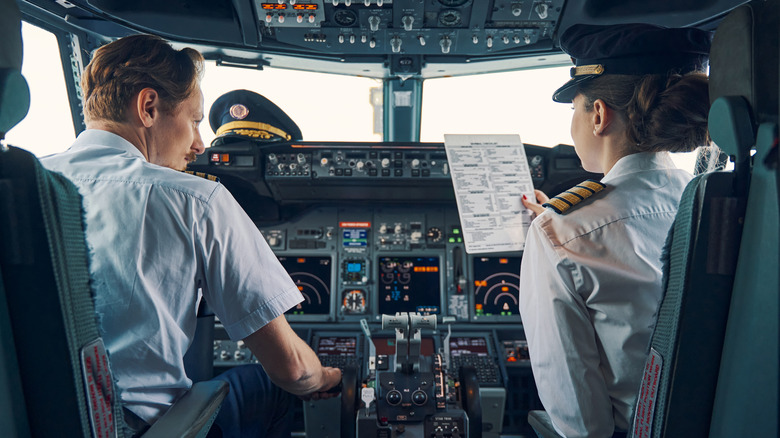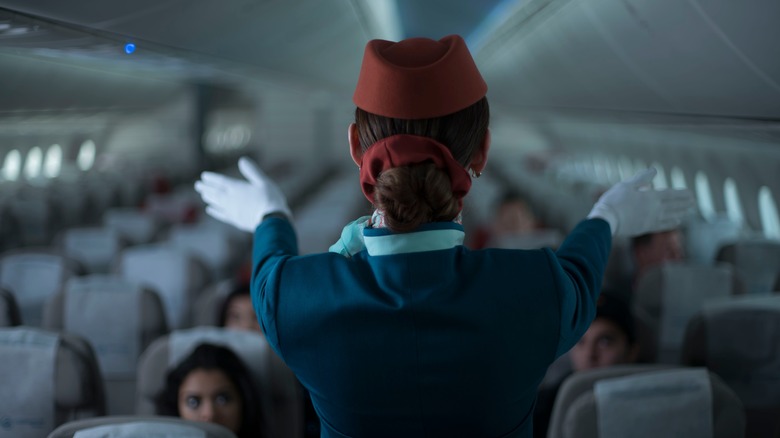
YAKOBCHUK VIACHESLAV/Shutterstock
Flying in a commercial airplane, statistically speaking, is one of the safest ways to travel in the modern world. According to a February 2024 report from the International Air Transport Association, in 2023, there was only one accident aboard an airplane for every 1.26 million perfectly normal flights. Additionally, factoring in the number of flight accidents that resulted in fatalities, there was only a 0.03 fatality risk aboard an airplane.
All that said, while major accidents and incidents aboard airplanes are rare, they do still happen on occasion, even if it’s something simple like a belligerent passenger ignoring safety briefings. One may think that if a passenger issue were to become severe enough, the matter may warrant direct intervention from the flight’s pilot, but we can’t know the answer to that without being pilots ourselves. So, to find out, we asked one: Retired Captain Richard Levy.
Captain Levy is a retired airplane pilot who worked for a major United States airline for nearly 41 years, only leaving his position after reaching the mandatory retirement age of 65. He currently works as a flight simulator instructor for another major U.S. airline, as well as a professional aviation consultant for attorneys involved in litigation. For more information on Captain Levy or to contact him, visit his website, Aviation Expert Consulting.
Should the pilot get up to resolve an issue?

Feruzbek/Shutterstock
As part of our discussion with Captain Levy, we asked him what passenger-related circumstances, if any, would warrant one of the flight’s pilots getting out of their seat, leaving the cockpit, and entering the main cabin to deal with the problem. In response to whether or not the pilot should ever leave the cockpit for a passenger issue, Captain Levy had only one word as an answer: «Never.»
The pilot’s first, foremost, and only priority is safely piloting the plane, and nothing should ever distract them from this duty. A commercial airplane has plenty of trained staff aboard to handle passenger issues, whether it’s something small like a headphone jack not working — all the way up to a potential medical emergency. In an emergency circumstance, the cabin crew could certainly communicate a need to, say, turn the plane around or make an emergency stop, but they would need to contact or come to the cockpit to relay that message. Barring quick bathroom breaks, the pilots should remain in their operating positions at all times.